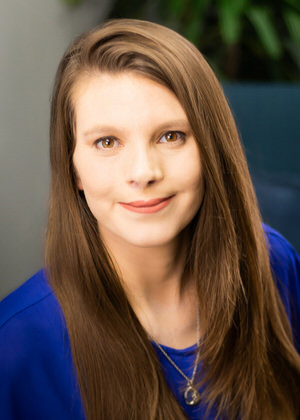Get the Right Help to Feel Better – Call (650) 461-9026 or Text (650) 461-9026
Nicole Brunn, LMFT, LPCC

Ages: Adults (18+ years)
Teens (14-17 years)
Pre-Teens (12-13 years)
Nicole Brunn, LMFT, LPCC
Nicole believes that therapy is a collaborative process, and she actively works to create a judgment-free and accepting environment for clients to heal and learn more about themselves. Nicole is warm, empathic, and passionate in providing individualized treatment that meets the client’s unique goals. She is dedicated to utilizing evidenced-based therapies, such as Cognitive Behavior Therapy and Dialectical Behavior Therapy. She has witnessed firsthand how effective these therapies are in transforming people’s lives.
Nicole is a Licensed Marriage and Family Therapist and an Associate Professional Clinical Counselor. She attended San Jose State University and graduated with a Masters in Marriage and Family Therapy. She gained her experience in community-based settings and has supported a variety of clients in healing from PTSD, depression, anxiety, and OCD. Nicole used to be a program lead at Gardner Health Services and her primary focus was providing intensive services for children and families with severe behavioral health disorders.
Before her Masters in Marriage and Family Therapy, Nicole was also a research assistant while attending San Diego State University and was involved with research projects about social anxiety, generalized anxiety, and OCD. She decided her passion wasn’t in research, but instead in providing direct therapy to individuals struggling with these difficulties.
In her spare time, Nicole enjoys reading fantasy novels, playing video games, and cuddling with her two cats.
Concerns:
- Academic Stress
- Anger
- Anxiety
- Attention-Deficit Disorder (ADHD)
- Autism Spectrum Disorder
- Behavioral Difficulties
- Body Image
- Death, Grief, and Loss
- Depression
- Divorce
- Family Problems
- Hair Pulling (Trichotillomania)
- Insomnia
- LGBTQIA+, Gender Identity and Sexual Orientation
- Life Transitions
- Obsessive-Compulsive Disorder (OCD)
- Panic Attacks
- Parenting and Discipline
- Phobias
- PTSD/Trauma
- Relationships/Communication
- School Refusal
- Self-Esteem
- Self-Harm
- Social Anxiety
- Stress
- Tourette Syndrome or Tics
- Women’s Issues
- Work/Career
Special Interests:
- OCD
- Trauma
Intensive Study/Specialization:
- Behavioral Interventions
- Cognitive Behavioral Therapy
- Dialectical Behavioral Therapy (DBT)
- OCD
- TEAM-CBT Therapy
- Trauma-focused CBT
Marriage and Family Therapists are mental health professionals trained in psychotherapy with a family systems influence, and licensed to diagnose and treat mental and emotional disorders that affect individuals, couples, and families. The Federal government has designated marriage and family therapy as a core mental health profession along with psychiatry, psychology, social work and psychiatric nursing. The State of California support and regulate the profession by licensing MFTs.
Educational requirements
Marriage and Family Therapists have graduate training (either a masters or doctoral degree) in counseling psychology with an emphasis in marriage and family therapy. Prior to a rigorous exam process leading to licensure, LMFTs must complete at least 3,000 hours of post-graduate clinical experience under the supervision of a licensed mental health professional. Before full licensure, LMFTs are called “Associates”. LMFTs are employed in a variety of private and public settings, including private practice, community mental health centers, and behavioral managed care organizations.
Do LMFTs only work with clients who are having problems in their marriages and families?
No. While LMFTs are qualified to do couples and family therapy, most LMFTs work with individual adults to not only enhance the quality of their relationships, but also decrease symptoms of anxiety, depression, and stress.
How can a LMFT help me?
Like other mental health professionals such as social workers, psychologists, and psychiatrists, LMFTs help clients by diagnosing and treating common emotional and behavioral difficulties that interfere with functioning at an optimal level. LMFTs use empirical-supported counseling techniques to help their clients achieve desired goals.
Professional counselor education and training standards for licensure are on par with marriage and family therapists and clinical social workers, the other two master’s level mental health providers in the state. Requirements for California’s Licensed Professional Clinical Counselors (LPCCs) include:
- Possession of a 60-unit master’s or doctoral degree in counseling, or a closely related degree, from a regionally accredited or “approved” institution of higher education that includes certain core content areas
- Completion of a minimum of 3,000 hours of post-master’s supervised clinical experience, performed over two years, and continuing education hours for renewal (Before full licensure, LPCCs are called “Associates”.)
- Passage of the National Clinical Mental Health Counselor Examination (NCMHCE) and a California Law & Ethics Exam
- Adherence to a strict Code of Ethics and recognized standards of practice, as regulated by California’s Board of Behavioral Sciences
How can a LPCC help me?
Like other mental health professionals such as social workers, psychologists, psychiatrists, LMFTs, LPCC’s help clients by diagnosing and treating common emotional and behavioral difficulties that interfere with functioning at an optimal level. LPCC’s use empirical-supported counseling techniques to help their clients achieve desired goals.
